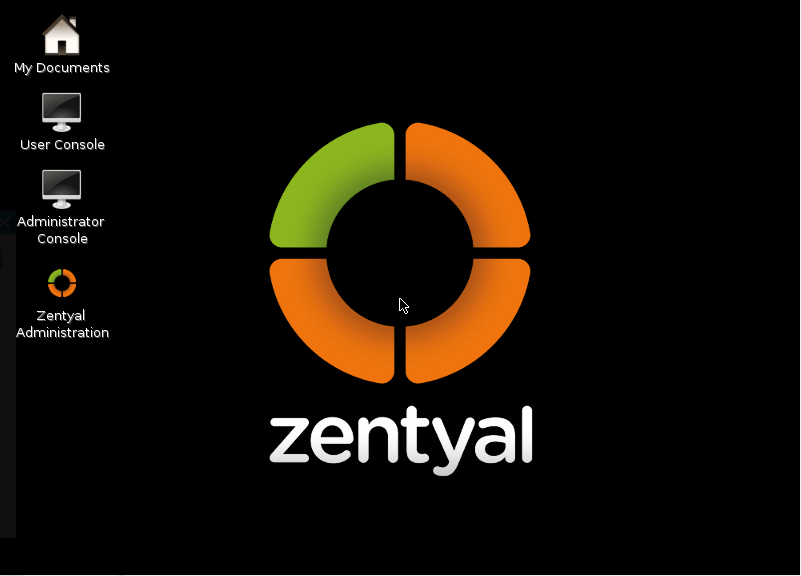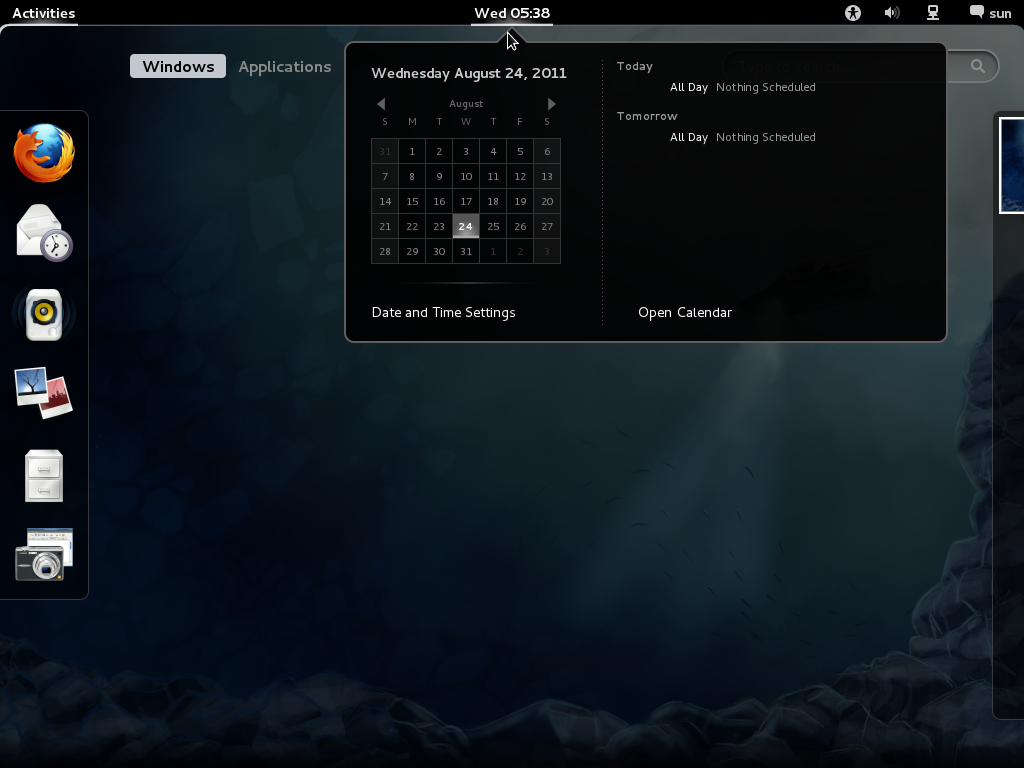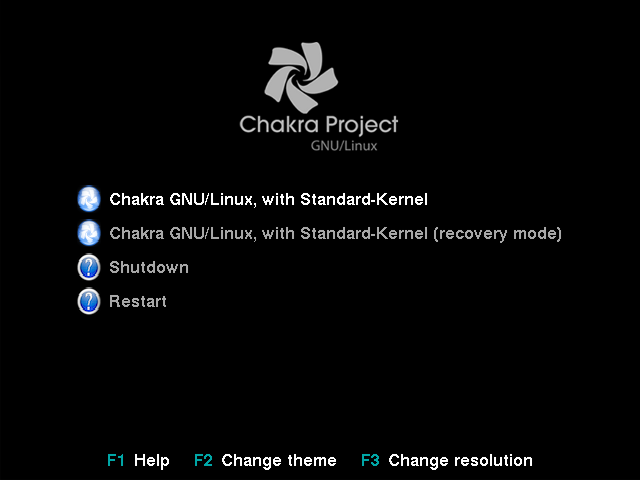![]() Zentyal, formerly known as eBox Platform, is a multi-purpose Linux distribution based on Ubuntu server. It can function as a network gateway, unified threat manager, office server, infrastructure manager, and a unified communications server. It is developed and maintained by Zentyal, a software solutions provider based in Spain.
Zentyal, formerly known as eBox Platform, is a multi-purpose Linux distribution based on Ubuntu server. It can function as a network gateway, unified threat manager, office server, infrastructure manager, and a unified communications server. It is developed and maintained by Zentyal, a software solutions provider based in Spain.
Zentyal 2.0 is the first stable release under the Zentyal name, and this article is the first review of this server distribution under its new name.
Installation: Zenyal is based on Ubuntu 10.04 server, and it uses the same installation program. The installation process is a two-stage one. In the first stage, the base system is installed, and in the second, the modules are installed. LVM, the Linux Logical Volume Manager, is the default disk partitioning scheme. RAID and iSCSI installations are supported. Full disk encryption is also supported though the process of configuring disk encryption is not as simple as Fedora’s or even that of PC-BSD. You may read how to install Zentyal on an encrypted LVM.
The module installation (during the second stage) is very flexible. You may choose to install all or some of the modules. Each module offers a set of features. You may view a short video of how to install Zentyal’s modules below. A couple of screenshots are available on the last page.
Administration: Administration of Zentyal is via a secure (https), browser-based interface and locally via a desktop interface: Local administration is via the same browser-based interface running atop the Lightweight Desktop Environment (LXDE). You may also launch a terminal and install any number of packages that you need using apt-get.
Zentyal’s default desktop

Zentyal desktop
The user account created during the first installation stage is used for all administrative tasks. However, the user account installation step (shown below) incorrectly states that the user account will be used for “non-administrative activities.” The same (user) account that is created at this step is the same that is required (by default) for both remote and local administrative tasks. It is the admin account.

User account creation during installation
Free Features (Modules): Zentyal is free to download and use, no charge. Features are delivered via modules. The module and the features they deliver are:
- Zentyal Gateway –
- Load balancing and WAN fail-over
- Traffic shaping (QoS)
- Wired and wireless interface configuration. VLAN support.
- Firewall with stateful packet inspection
- RADIUS authentication server
- HTTP proxy with cache, content filtering, anti-virus, anti-spam, and mail filter
- Zentyal UTM –
- VPN (OpenVPN)
- Intrusion detection and prevention (Snort)
- Zentyal Infrastructure –
- DHCP server
- DNS server
- Web (Apache) server
- FTP (vsftp) server
- NTP server
- Zentyal Office –
- File and printer server with Samba and CUPS
- Backup and restore. Encrypted, bandwidth-efficient data backup using Duplicity
- Calendar, contacts and tasks sharing with Zarafa groupware
- LDAP server with Active Directory synchronization (AD) and Roaming Profiles
- Zentyal Unified Communications –
- Asterisk VoIP with support for calls to mobile phones and landlines
- Jabberd2-powered Instant Messaging (IM)
- SMTP and POP3/IMAP4 with SSL/TLS
With these modules, Zentyal allows you can build any type of server that you need. It is worth noting that this is not unique to Zentyal. Most of the distributions in the Firewall/Router category are similarly designed.
Fee-based Services: Under Zentyal’s Professional and Enterprise Subscription services, additional capabilities (services and addons) may be added to the default Zentyal installation. The services, which includes Quality Assured Software Updates, Virtual MSP, Advanced Security Updates, Virtual CIO, Disaster Recovery, and VoIP Calls, are available via Zentyal Cloud and addons. A review of the services and capabilities available under the Professional Subscription service will be published here early next week. Subscribe via RSS or email to have it delivered automatically to your Feed Reader or Inbox.
Final Thoughts: While I am not yet in a position to comment on Zentyal’s fee-based services, the free features delivered via the modules will satisfy the requirements for a server distribution for most users. The complaints I have are with the (manual) installation and the administrative interface.
The installer is the same used on Ubuntu server, the Linux distribution it is based on, and the manual or advanced installation process could be better. A true graphical interface will make a world of difference. An installation task that requires, say, three steps or less on Fedora, Debian and PC-BSD could take more than a dozen steps to accomplish under Zentyal.
With regards to the administrative interface, one aspect of it that could use a bit of tweaking are the widgets (the administrative interface is widgetized). While you can move them around, you cannot collapse a widget. This is not a show-stopper, but all good widgetized interfaces tend to have collapsible widgets.
Resources: A free installation image (460 MB CD image) of Zentyal may be downloaded from here. The installation image is a 32-bit image and it runs on both 32- and 64-bit platforms. You may also access basic documentation, an installation guide, and developer resources.







